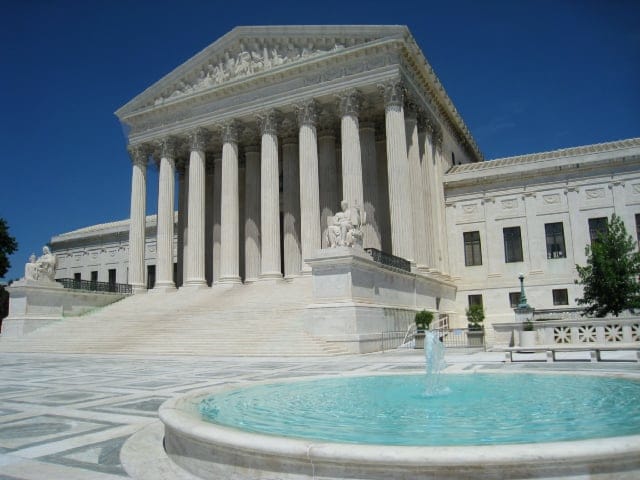
The U.S. Supreme Court on Tuesday once again threw out an attempt by Arizona and 12 other states to defend a controversial Trump-era policy that made it harder for legal immigrants to live in the country if they used or relied on certain public benefits.
The policy, a 2019 revision of the public charge rule, was a complicated and contentious revision of previous longstanding guidance, and was roundly criticized as discriminatory and a “wealth test.” Multiple immigrant and civil rights organizations sued to prevent the rule from going into effect, and a complicated legal tap-dance ensued across multiple levels of courts across the country before the Biden administration allowed the rule to be vacated across the country before formally withdrawing it.
Last June, the Supreme Court declined to take up a previous attempt from the group of Republican-led states to keep the rule intact.
The lawsuit by Arizona stemmed from the Biden administration’s decision to withdraw the rule after taking office in March 2021. The first federal judge to block the 2019 public charge rule (“the Rule”) from going into effect was in Illinois, and was quickly joined by federal courts in New York, Maryland, California, and Washington. The Supreme Court lifted the blocks on January 21, 2020, and the rule went into effect on February 24, 2020.
Over the course of 2020, three separate Circuit Courts of Appeal upheld the lower court injunctions, and the federal judge in Illinois vacated the Rule in a November 2020 decision. However, the appeals court stopped the judge’s decision from going into effect, anticipating an appeal from the Trump administration.
Instead, the Biden administration dropped the appeal once it came to power in 2021, which allowed the Illinois federal judge’s order vacating the Rule to go into effect nationwide.
In 2021 a coalition of states, led by Arizona, tried to intervene in the California public charge. The states argued that the federal government was declining to defend the Rule, and they sought permission to defend the rescinded Rule in the government’s place.
The appeals court (the Ninth Circuit) denied the request, and the group of states appealed to the U.S. Supreme Court. Though the Court initially agreed to hear the case, Tuesday’s decision could mean the end of further efforts to revive the Trump-era rule.